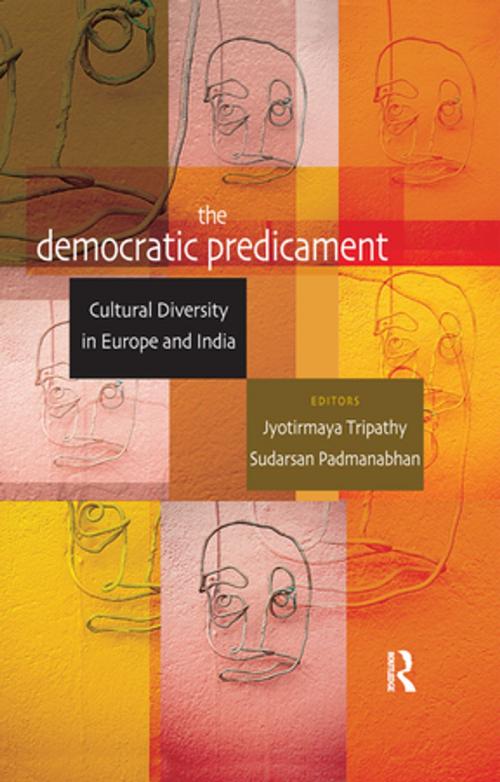The Democratic Predicament
Cultural Diversity in Europe and India
Nonfiction, Social & Cultural Studies, Social Science, Sociology, Political Science| Author: | ISBN: | 9781317809418 | |
| Publisher: | Taylor and Francis | Publication: | March 14, 2014 |
| Imprint: | Routledge India | Language: | English |
| Author: | |
| ISBN: | 9781317809418 |
| Publisher: | Taylor and Francis |
| Publication: | March 14, 2014 |
| Imprint: | Routledge India |
| Language: | English |
Both India and Europe have been undergoing a difficult process of negotiating cultural, religious and ethnic diversity within their democratic frameworks. In fact, recent incidents of xenophobic backlash against multiculturalism and minority communities in Europe, as well as myriad movements for constitutional recognition of castes, tribes and languages and the emergence of Islamophobic terror in India, question the conventional idea of democracy as the idyllic preserver of diversity.
This volume contests the simplistic connection between democracy and diversity by proposing that democracy, in fact, produces, sediments and reinforces cultural heterogeneity. It argues that in democratic polities, disparate cultural practices are often converted into identity categories, with disturbing implications for national identity, constitutionalism, political governance and citizenship. While mobilizations on the plank of cultural differences are typically viewed as being born in undemocratic spaces with little toleration for diversity, they also find fertile soil in democracy insofar as democracy celebrates diversity and allows cultural dissent to thrive. Such dissent, while essential for democracy, has difficult consequences. Examining the fundamental conflict between constructions of particular cultural identities and mandates of a unifying democratic ethos, the book brings forth the complexities underlying the politics of identity recognition and national integration.
In making a radical intervention in the discourse, this volume offers a critique of existing paradigms of multiculturalism. It will interest scholars and students of political science, sociology, and postcolonial and comparative studies.
Both India and Europe have been undergoing a difficult process of negotiating cultural, religious and ethnic diversity within their democratic frameworks. In fact, recent incidents of xenophobic backlash against multiculturalism and minority communities in Europe, as well as myriad movements for constitutional recognition of castes, tribes and languages and the emergence of Islamophobic terror in India, question the conventional idea of democracy as the idyllic preserver of diversity.
This volume contests the simplistic connection between democracy and diversity by proposing that democracy, in fact, produces, sediments and reinforces cultural heterogeneity. It argues that in democratic polities, disparate cultural practices are often converted into identity categories, with disturbing implications for national identity, constitutionalism, political governance and citizenship. While mobilizations on the plank of cultural differences are typically viewed as being born in undemocratic spaces with little toleration for diversity, they also find fertile soil in democracy insofar as democracy celebrates diversity and allows cultural dissent to thrive. Such dissent, while essential for democracy, has difficult consequences. Examining the fundamental conflict between constructions of particular cultural identities and mandates of a unifying democratic ethos, the book brings forth the complexities underlying the politics of identity recognition and national integration.
In making a radical intervention in the discourse, this volume offers a critique of existing paradigms of multiculturalism. It will interest scholars and students of political science, sociology, and postcolonial and comparative studies.















